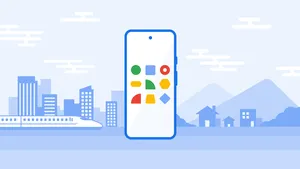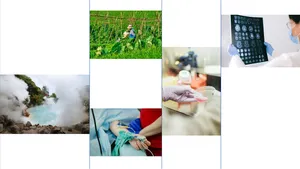How we're helping people in Asia-Pacific better understand what they see online

As the way we receive information continues to evolve, it’s more important than ever that people have the features and tools to help them better understand what they see online. That’s why we work to take into account the language needs and local contexts for different countries when we build our products.
Here are four ways that we’re making it easier for people in Asia-Pacific to evaluate information online.
Info literacy tools in more languages
About this image and “more about this page,” a feature in About this result, are tools that allow people to find more context on Search for images and websites respectively. Information like an image’s history, or how a website has been reviewed or covered in the news helps people decide for themselves how trustworthy that content is. The features are both now available in 40 additional languages each including Hindi, Indonesian, Japanese, Korean, Thai and Vietnamese.
About this image is a quick way to check the background and context of images online. You can access it by clicking on the three dots on an image in Google Images results, or by clicking "more about this page" in the About this result tool on search results.
Misinformation research in Southeast Asia with the Safer Internet Lab
In 2022, we launched the Safer Internet Lab (SAIL), a collaboration with the Jakarta-based Centre for Strategic and International Studies (CSIS) to conduct research around misinformation. Now, we’re expanding its remit beyond Indonesia to the rest of Southeast Asia. SAIL will examine how bad actors in the region can manipulate synthetic media, how that impacts the public, and what possible solutions may look like. Prior to the Indonesian elections held in February, SAIL helped shed light on misinformation through engagements with key stakeholders like government officials, civil society, fact-checkers, and academics.
Adinova Fauri, a researcher in the Department of Economics at the Centre for Strategic and International Studies (CSIS), with Markham Erickson, VP of Government Affairs & Public Policy at Google

Support for fact-checking journalists
Through the Google News Initiative, we’ve trained more than 222,000 journalists in the region to help surface quality information and debunk misinformation.
- In Australia, we began a partnership with the Australian Associated Press (AAP) to increase AAP’s resources to provide fact-checks, ensuring that accurate information is provided to 380 publications in Australia and New Zealand.
- In India, we announced Shakti, an Indian Election Fact-checking Collective — a consortium of news publishers and fact-checkers to tackle misinformation ahead of the Indian General Elections this year.
- In Taiwan, we’ve been partnering with leading NGOs dedicated to media literacy including MyGoPen, Fake News Cleaner and the Association for the Promotion of Community Universities. More than 1,200 educators have been trained so far, benefiting more than 260,000 people including students.
Google.org grants for local organizations
Google.org, our philanthropic arm, empowers social impact organizations to scale their efforts in combating misinformation.
- Under Google.org’s grant to help the ASEAN Foundation expand media literacy education, they’ve trained 1,500 people who have provided training to over 190,000 end beneficiaries — surpassing their initial target.
- In 2023, Google.org announced its single largest grant for online safety and digital literacy in India, a $4 million grant to the CyberPeace Foundation, a cybersecurity advocacy organization. To date, more than 50,000 volunteers have been recruited to help with developing fact-checking techniques and guidelines for responsible online behavior.
- The Japan Fact-Check Centre (JFC), a fact-checking organization established by the Safer Internet Association with support from Google.org, has trained more than 2,500 people on fact-checking and media literacy skills.
- In anticipation of the Indonesian election in February, Mafindo expanded their digital and media literacy training for the youth and elderly, benefitting more than 63,000 people.
Over the past five years, Google.org has supported 26 social impact organizations with over $35 million, reaching more than a million underserved individuals and organizations to tackle misinformation and enhance cyber resilience.
As the landscape continues to change, we remain committed to working to create the tools and resources to help people better understand what they’re seeing online in Asia-Pacific and around the globe.






